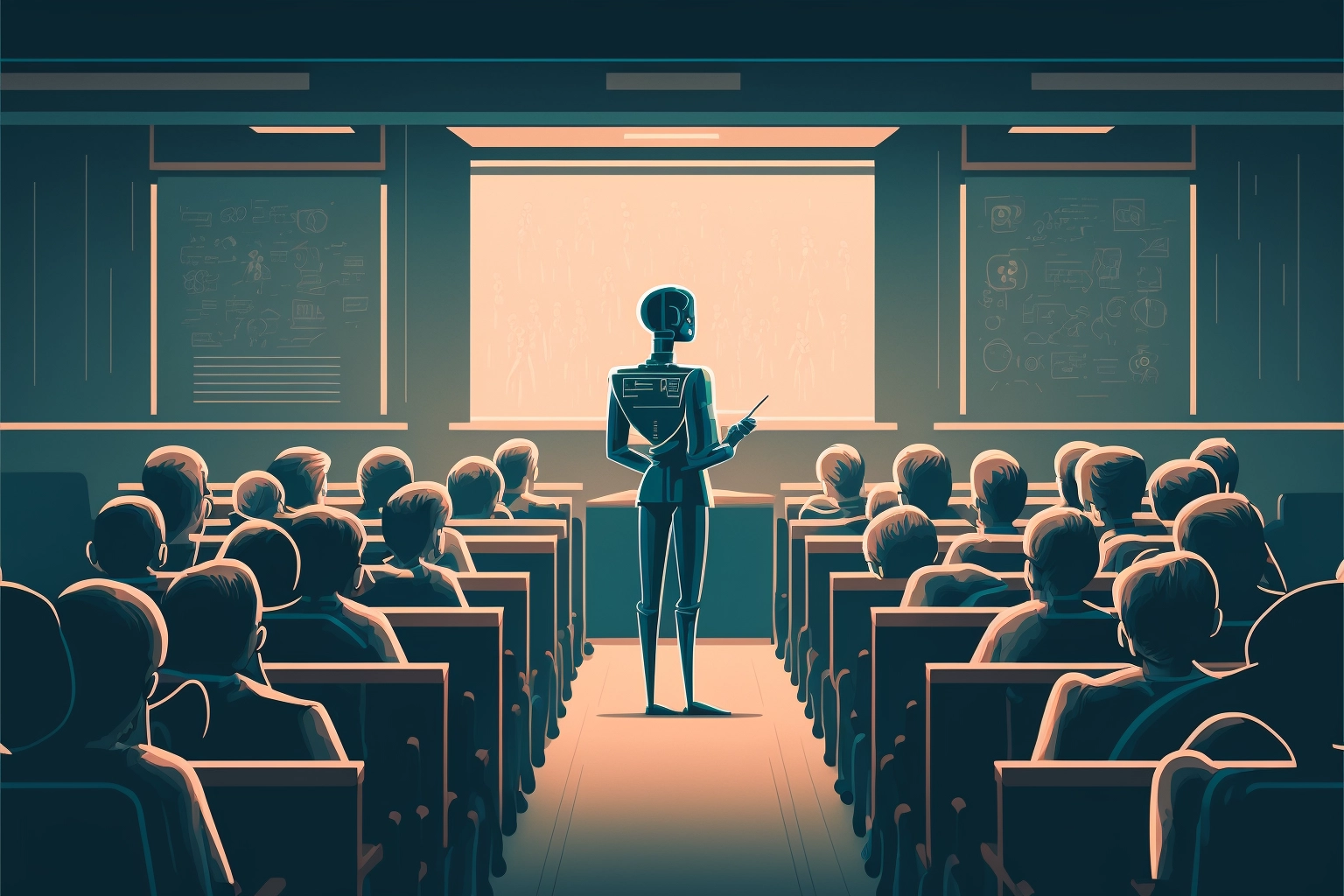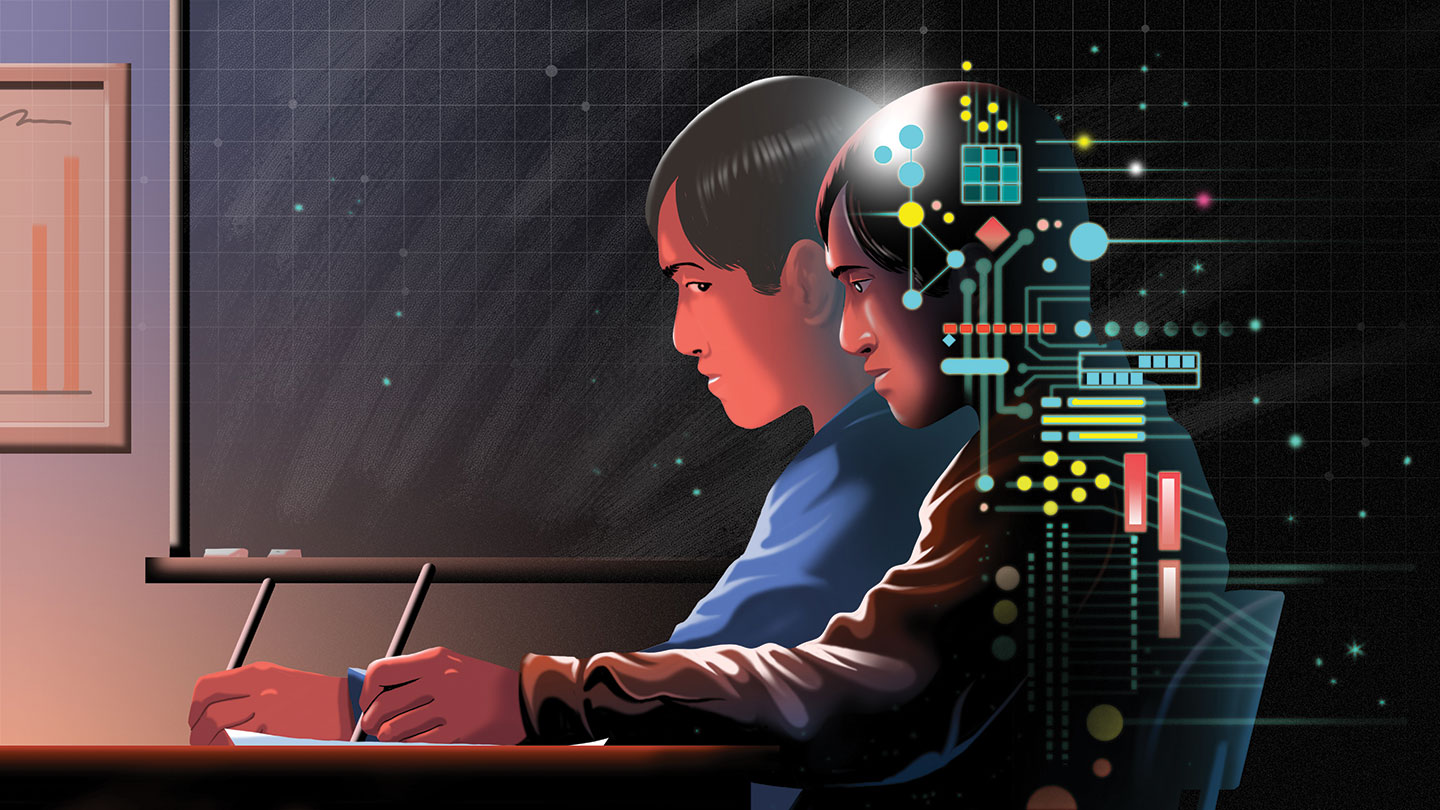ChatGPT in Education: Transforming Learning and Teaching

ChatGPT, a large language model developed by OpenAI, is revolutionizing education by empowering both learners and educators with advanced capabilities. Here’s how ChatGPT is transforming the learning and teaching landscape:

Personalized Learning: ChatGPT’s ability to generate human-like text and provide tailored responses allows for personalized learning experiences. Students can engage with ChatGPT for personalized assistance, tailored questions, and feedback on assignments, helping them identify and address individual learning gaps.

Enhanced Content Creation: ChatGPT’s language generation capabilities enable educators to create engaging and informative lesson plans, presentations, and study materials. By providing diverse content formats (e.g., summaries, explanations, examples), ChatGPT helps students better grasp complex concepts and improve their understanding.
Skill Development and Critical Thinking: ChatGPT can help students develop essential skills such as critical thinking, problem-solving, and communication. Through interactive conversations and thought experiments, ChatGPT encourages students to question assumptions, explore different perspectives, and articulate their ideas effectively.
Assessment and Feedback: ChatGPT can assist educators in creating assessments and providing feedback to students. It can generate multiple-choice questions, essay prompts, and personalized feedback tailored to each student’s performance, fostering a more objective and efficient assessment process.
Educator Professional Development: ChatGPT serves as a valuable tool for educator professional development. Educators can use ChatGPT to get real-time feedback on lesson plans, collaborate with colleagues, and explore innovative teaching strategies, enhancing their pedagogical skills and staying up-to-date with best practices.
However, it is important to note that ChatGPT is still under development and has limitations. Educators should use ChatGPT as a supplementary tool alongside traditional teaching methods and ensure appropriate digital literacy and critical evaluation skills among students.
In conclusion, ChatGPT has the potential to transform education by personalizing learning, enhancing content creation, developing skills, facilitating assessment and feedback, and supporting educator professional development. As this technology continues to evolve, it will be crucial for educators and learners to embrace its benefits while navigating its limitations, ensuring its responsible and effective use in the education ecosystem.ChatGPT in Education: Transforming Learning and Teaching
Executive Summary
ChatGPT is an advanced language model that has the potential to revolutionize education. Its ability to generate human-like text, answer questions, and provide explanations can greatly enhance the learning and teaching experience. By leveraging ChatGPT, educators can create personalized learning plans, provide real-time feedback, and foster student engagement. This transformative technology has the power to make learning more accessible, engaging, and effective for all.
Introduction
The integration of ChatGPT in education opens up a world of possibilities for students and educators. Its ability to provide personalized learning experiences, streamline tasks, and automate certain aspects of teaching can significantly improve the overall educational process. This advanced language model has the potential to enhance learning outcomes, boost student engagement, and revolutionize the way we approach education.
FAQs
Q: How does ChatGPT benefit students?
A: ChatGPT can assist students with various tasks, such as understanding complex concepts, generating essays, practicing problem-solving, and improving their writing skills.
Q: How does ChatGPT support educators?
A: ChatGPT can help teachers create engaging lesson plans, provide personalized feedback, and automate tasks like grading and providing resources.
Q: Are there any concerns regarding ChatGPT in education?
A: While ChatGPT offers numerous benefits, concerns include potential plagiarism, its reliance on reliable data, and the need for ethical guidelines.
Top 5 Subtopics
Personalized Learning
- ChatGPT can analyze individual student data to identify knowledge gaps.
- It can generate tailored lessons, assignments, and practice materials that cater to specific learning styles.
- It can provide real-time feedback and support, helping students progress at their own pace.
Enhanced Engagement
- ChatGPT’s conversational interface and ability to answer questions foster active student participation.
- It can introduce interactive simulations and gamified learning experiences, making learning enjoyable.
- It can help students create virtual projects and presentations, enriching their learning process.
Efficient Processes
- ChatGPT can automate time-consuming tasks, allowing educators to focus on more meaningful tasks.
- It can grade assignments, provide feedback, and generate lesson plans, freeing up educators’ time.
- It can streamline communication between teachers, students, and parents, enhancing collaboration.
Accessibility for All
- ChatGPT can translate text into multiple languages, facilitating learning for non-native speakers.
- It can provide text-to-speech functionality, supporting students with reading difficulties.
- It can generate alternative learning materials, such as videos and diagrams, to cater to diverse learning needs.
Ethical Considerations
- There is a need for clear guidelines regarding plagiarism prevention and responsible use.
- Educators should be aware of ChatGPT’s limitations and ensure the accuracy of information provided.
- Ethical concerns surrounding bias and privacy should be addressed to maintain fairness and equity in education.
Conclusion
ChatGPT has the potential to redefine the educational landscape. By embracing this transformative technology, we can create a more personalized, engaging, and equitable learning experience for all students. As educators, it is our responsibility to harness the power of ChatGPT responsibly and ethically to empower students and facilitate their success.
Keyword Tags
- ChatGPT in Education
- Personalized Learning
- Enhanced Engagement
- Efficient Processes
- Accessibility for All
